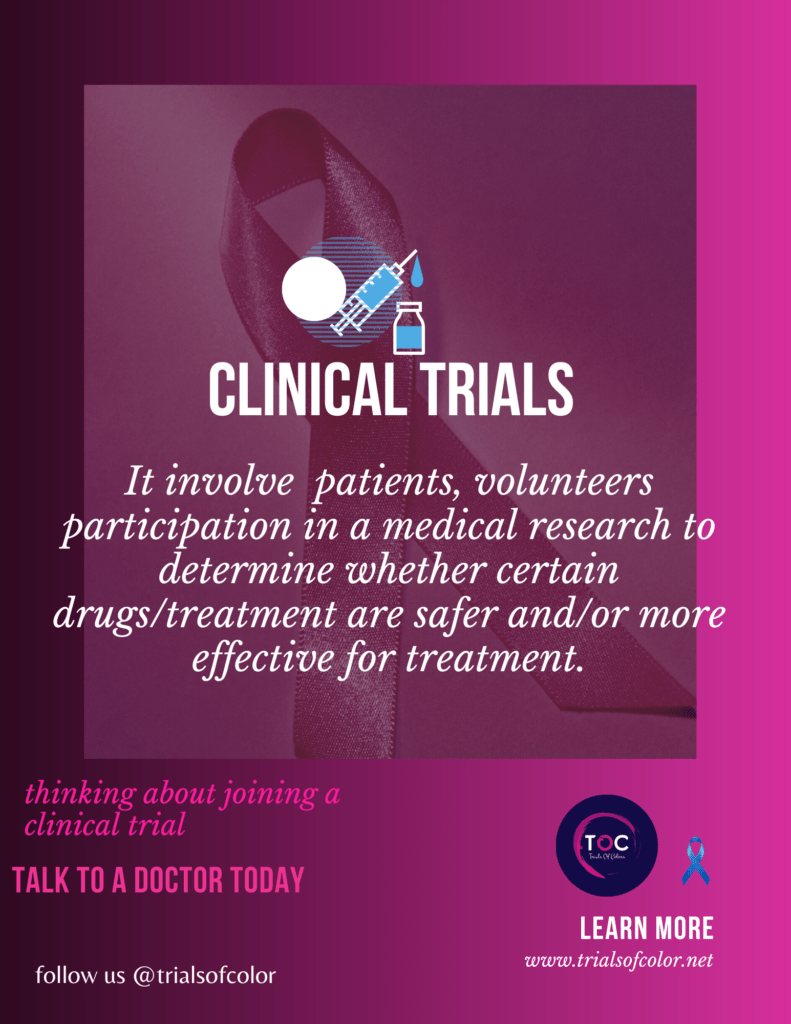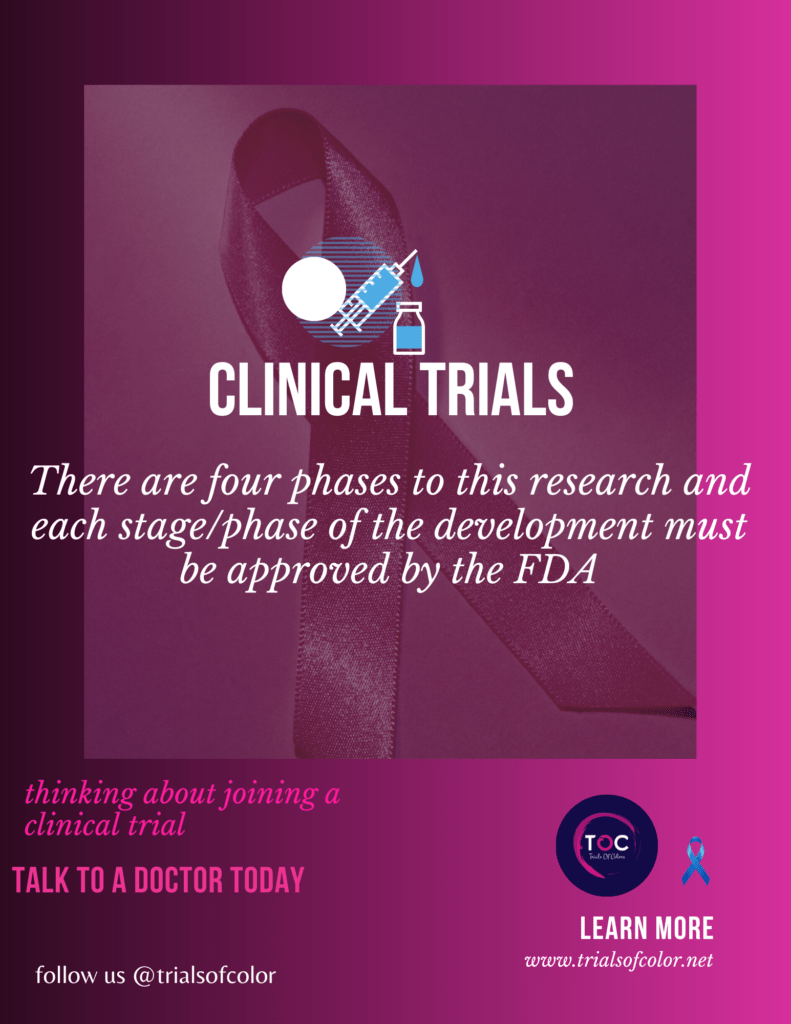By Jesutomi Akomolafe
It involves patients, volunteers participating in a medical research to determine whether certain drugs/treatments are safer or more effective for treatment.
It is another way to contribute to the development of life-saving treatment options.
We have all been patients at some point in our lives, and it is unlikely that you were treated with vaccines, drugs, or therapies. All of these were outcomes of clinical trials.
Clinical trials help to develop new medicines, cures, vaccines, and other medical products, such as cancer treatment, #covid19 #vaccines, #fluvaccines, and many others.

How Does Clinical Trial Work
Clinical Trials can be for Breast Cancer treatment, lung cancer, colorectal cancer and any kind of illness or viruses.
Before a clinical trial can take place, according to the U.S Food and Drug Administration (FDA), there must be clinical trial design including submission of an Investigational New Drug (IND) application to FDA before beginning clinical research.
Note: There are four phases to this research and each stage/phase of the development must be approved by the FDA. This means, if at any point the trial fails one stage, the FDA has the right to stop/review the clinical trial. Meanwhile, if for instance, a cancer trial meets all the stages successfully, it is subject to approval by FDA.

So, drugs and vaccines do not just hit the market until it is approved. Researchers design a clinical trial where they review information about the drug, questions and what it aims to achieve.
Phases of Clinical trials
There are four phases to clinical trials:
Phase I- This phase involves trials of a new treatment safety and seeks the best way to give the treatment. At this stage, signs that cancer responds to the new treatment is also looked into. Participants is 15-50
Phase II: Phase II trials test if one type of cancer responds to the new treatment. There are less than 100.
Phase III trials test if a new treatment is better than a standard treatment. Participants are hundreds of people
Phase IV trials find more information about long-term benefits and side effects. There are thousands of people.
What Qualifies you for Clinical Trial
As stated earlier, there are different types of clinical trials and as such, it comes with different eligibility criteria. These criteria are different for each trial. They include whether you are a healthy or patient volunteer. They also include factors such as your age and sex, the type and stage of disease, whether you have had certain treatments, and whether you have other health problems. It may also include health history as well. Largely, you may be healthy and not be eligible for clinical trials; you may also have health history of certain treatment on trials and still do not make it for the clinical trial.
Diversity in Clinical Trials
Only about 4% of African Americans have been involved in Clinical Trials since 2006. This has its roots in many things, one which is lack of awareness.
There is a growing concern that doctors may not have enough time to educate patients about clinical trials. However, there should be deliberate steps in creating such awareness. The place of trained patient advocates who understands the science and language should not be overlooked. White and black doctors can work in sync with patients’ advocates to carry out the educational role. Also, timing is a virtue that must be employed when speaking with patients
Where there is absence of diversity in clinical trials, the outcome of such trials cannot be said to be generally acceptable and can neither be predicted to be accurate when used for treatment of patients from other backgrounds not involved in that trial.
About the contributor
Jesutomi Akomolafe is a communication expert with over seven years of experience in journalism, health advocacy, social justice, health management, diversity and inclusion
Nominated twice for Media Night-Out Award – in journalism ( 2021 and 2022).

